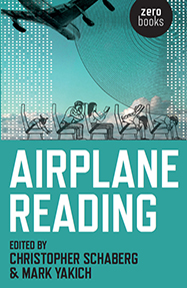I’ve been in plenty uncomfortable situations on airplanes before: the requisite overweight passenger suffocating my comfort zone, or the squalling baby who cries as her ears pop with the altitude change. There was the middle-aged man who reeked of sour alcohol, or the immaculately coiffed grandmother snoring over my shoulder. Experiences like these have made me hate airports and airplanes. I hate the incessant announcements over the intercom, the glazed smile of the flight attendants, the scratchy layered fabric of the seats, and the violent gush of the toilets. I hate how expensive a cup of stale coffee is inside the terminals, the cold tile of the floors, and the speckled blue-black carpet that is found in so many waiting lounges all over the world.
But this hatred for airports becomes muted and turns into blind affection when I remember the times my dad flew back home. My siblings and I would converge around the escalators while my mother parked the car. We would always arrive a little early, just in case he did. Suddenly, the bland airport announcements transformed into items of monumental interest; the vast mobs of people became welcoming, rather than daunting. It would bring tears to my eyes, watching the hurried, weary hordes break out into loud cheers and enthusiastic applause—and then, rounding the corner, would come a crowd of military men, grinning good-naturedly with the ovation. And striding forward would be my father, clad in the familiar camouflaged uniform, clutching the olive-green handles of his durable Army-issued duffel bag. He would always look a little older and a little more tired than when I saw him last, but I wouldn’t tell him that.
When we got home, I would go to bed, for I had inevitably stayed up too late. But I only pretended to be asleep. I knew he would come into the room and watch over us for a while, even exhausted as he must have been. I would shut my eyes and breathe loudly—and only when I heard his heavy footsteps leave the room could I sleep.






